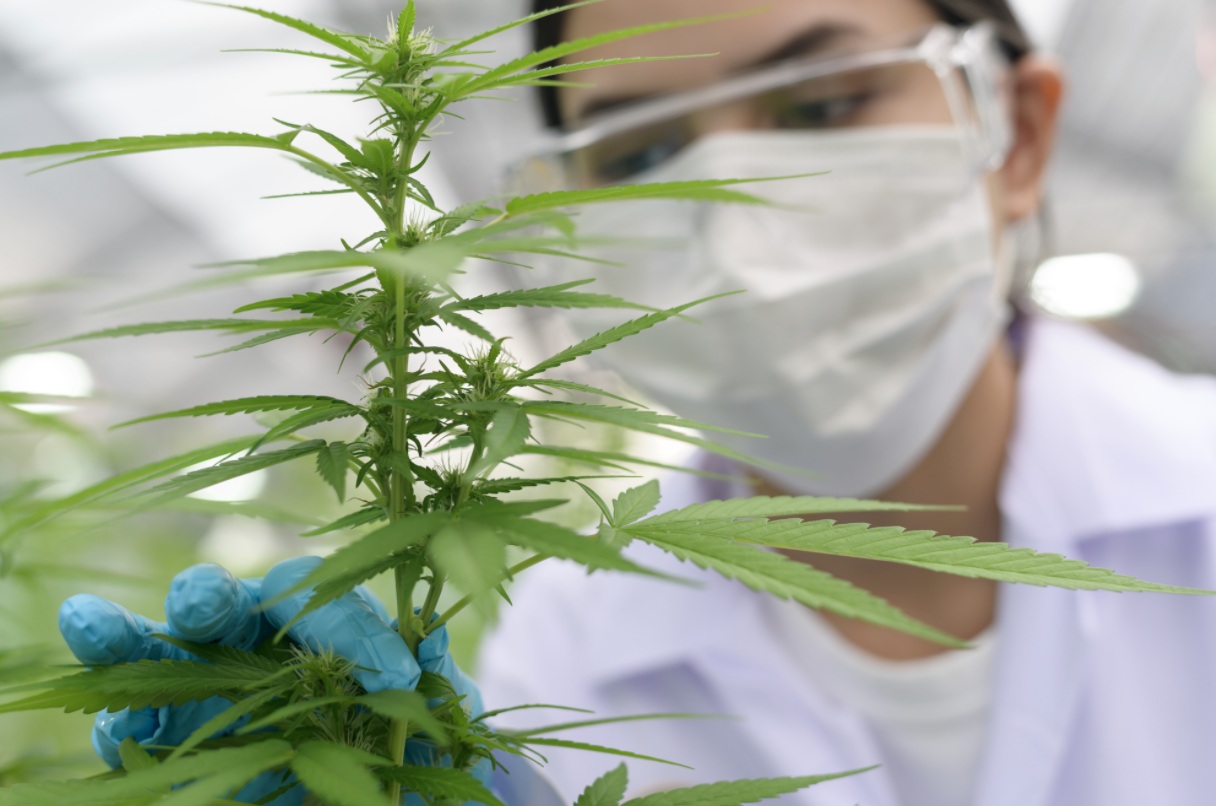
Darby Joyce
Content Marketing Coordinator
“This particular discussion is one that was a long time coming,” said Kogod dean, John Delaney, as he introduced the most recent Kogod Connections webinar, “Opportunities and Challenges in the Cannabis Industry.” Panelists discussed the history, future, and challenges of the rapidly expanding cannabis industry in the US. Held on February 14, 2022, the event was hosted by director of alumni relations, Jim Waite. Industry veterans Michael Keller, Tom Grebenstein, and Graham Farrar attended to speak about their experiences in the field.
As a retired financial executive and Kogod alumnus, Keller’s career has taken him across many fields. Since graduating, he’s spent time in the securities industry, directed an investment banking firm, and performed lobbying work in DC. He also served as a cofounding investor for Glass House Brands, a California-based cannabis company headed by fellow panelist Farrar.
An experienced entrepreneur and the president of Glass House Brands, Farrar also has a storied career. Farrar worked with technology companies and environmental non-profits before he began his foray into the cannabis industry through his work in agriculture and hydroponics.
Rounding out the panelist group is Tom Grebenstein, an alumnus of American University’s School of International Service. He has worked in public health and pandemic response and currently serves as the chief revenue officer of Tikun Olam, Israel’s first regulated medical marijuana provider.
Kogod's ability to host a conversation on the cannabis industry represents a notable shift in public attitudes towards cannabis products, and this change in perception is reflected globally—Grebenstein explained that Tikun Olam’s founder, Tzahi Cohen, initially used medical marijuana illegally in treating his patients. After significant lobbying, Cohen was able to work with the Israeli Ministry of Health to regulate his products and improve their availability.
That isn’t to say that opposition to cannabis is a thing of the past. Farrar believes that attitudes will continue to shift toward tolerance over time. “The biggest indicator of what someone’s view is going to be on cannabis is their age,” Farrar explained. “Time passes, and the people who grew up steeped in DARE and ‘Just Say No’ naturally fall away.”
This natural shift in public opinion means that both Farrar and Grebenstein are generally unfazed by opposition to cannabis legalization. “There are enough people who need help, who need direction,” said Grebenstein.
“Instead of trying to change someone’s mind, I can spend that time with the parents of a nonverbal child who’s using cannabis to gain a seventy-five-word vocabulary.
Tom Grebenstein
“Instead of trying to change someone’s mind, I can spend that time with the parents of a nonverbal child who’s using cannabis to gain a seventy-five-word vocabulary. I could be counseling somebody who’s trying to overcome opioid use disorder. Listening to the opposition just doesn’t become a factor in my life.”
The increasing legality of cannabis products in the US has proven beneficial to producers and consumers alike. For industry members, moving away from prohibition policies provides further opportunities to innovate. “It used to be that people were more focused on hiding—you had to be covert because the mere existence of the plant could get you in trouble,” explained Farrar. “As you take that away, you’re seeing a tremendous amount of energy redirected across the spectrum.”
Beyond developing new cannabis products, this energy also extends to discovering new farming methods that are simultaneously efficient and sustainable. Glass House Brands’ cannabis greenhouse covers ten acres of land—a feat that would have once been impossible but is now setting the stage for further expansion.
For consumers, legality results in regulated products with improved quality and safety. Legality is especially important from a medical perspective—the medicinal marijuana market focuses on creating a normalized, consistent product that always works the same way in treating symptoms. Though Grebenstein's goals differ from Farrar’s, who works in the recreational marijuana field, he believes that both sides of the industry have evolved in parallel and that growth in one benefits the other.
We’re all working toward new things, just in slightly different directions."
Tom Grebenstein
Since cannabis only recently became the center of a regulated industry in the US, working with it brings along a new set of business challenges. Many banks are still concerned about the legal ramifications of working with cannabis companies, meaning that these companies often cannot open credit lines or take out loans. There are also challenges with balancing regulations. “Production regulations are good for regulating sustainable farming practices and avoiding diversion into the gray and black markets,” remarked Grebenstein. “But then you get into state production regulations. Recently, the government of Florida decided that there’s no more branding on packaging, and we ended up throwing out millions of units.” Between these production challenges, issues in safe banking, and the variance in legality, the cannabis industry faces complications as it develops.
Still, the panelists agree that it’s an excellent time to explore opportunities in the industry as it stabilizes. “I think the challenge with cannabis is that there are so many facets; choosing a focus is the hardest part,” said Farrar. “It’s not finding the opportunity because everywhere you look, there’s one of those.”
“The best investment a cannabis company can make right now is hiring experienced managers who want to make a positive change in the field,” added Keller.
Grebenstein advised those interested in a profession in the cannabis industry to expect the unexpected.
“Be prepared for chaos,” he said. “Your plan at 9 a.m. is not going to be the same plan at 7 p.m. on any given day.”
